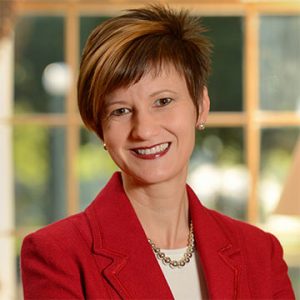As the spring semester winds down, my colleagues and I experience mixed emotions as we say goodbye to our seniors, students who we have invested considerable time and energy in over the course of their enrollment at the University of Mississippi. What I love most about commencement time is witnessing the tangible result of the work we do in Student Affairs. By “tangible result” I mean the graduates—the holistic outcome of our efforts in higher education. These evolved and developed students are the manifestation of our everyday work. Certainly, students would not be graduates without their academic accomplishments; but beyond conferring and awarding degrees, the impact of the broader collegiate experience is also on display each graduation day.
The work of Student Affairs remains a mystery for many. Our work is often masked behind recruitment efforts, roommate mediations, leadership retreats, academic and career coaching, and wellness interventions. Much of it presents as transactional interactions or co-curricular efforts, but it is so much more. Student Affairs work is wholly educational and intermingles with the curricular experience of each student. While we are often tasked with “handling the issue” or “managing the crisis,” what we really are doing is assessing human behavior and applying our knowledge and expertise to help students develop critical thinking skills, effective decision-making skills, and the ability to act with integrity and sound judgment.
The Student Personnel Point of View, a formative document released in 1971 by the American Council on Education, reveals the primary objective of our work:
The student personnel movement constitutes one of the most important efforts of American educators to treat the college and university students as individuals, rather than as entries in an impersonal roster… In a real sense this part of modern higher education is an individualized application of the research and clinical findings of modern psychology, sociology, cultural anthropology, and education to the task of aiding students to develop fully in the college environment. (pg. 3)
Every day, but especially on Graduation Day, I am incredibly proud of the educational work we do in Student Affairs. I know staff have engaged their theoretical training to skillfully guide students as they cognitively, morally, and psychosocially transition from adolescence to young adults as a result of the experiences and challenges they have encountered at Ole Miss. We are faculty without classrooms, and we help students apply their evolving knowledge and co-curricular experiences to navigate the challenges of life. Our work carefully and creatively supports and enhances the acquisition of knowledge provided in the classroom by our academic colleagues. Together, we are all witness to the graduate—the accomplishment of our combined efforts.
Dr. Hephner Labanc provides leadership and direction for all the departments encompassed by the Division of Student Affairs. She also serves as a faculty member in the Higher Education program in the Department of Leadership and Counselor Education.
Conference on the Philosophy and Development of Student Personnel Work in College and University, & American Council on Education (1937). The student personnel point of view. Washington, D.C.: The American council on education.

